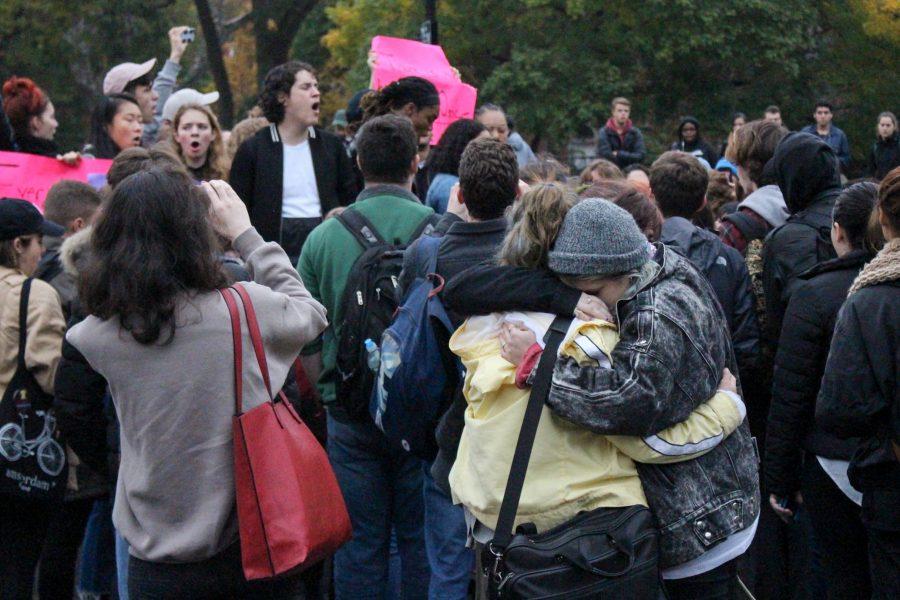Buenos Aires: Professors Provide Post-Election Reassurance
Previous political struggles in countries such as Argentina have shown that in times of hardship, people can survive political turmoil.
November 15, 2016
In this time of great political upheaval, I want to recognize some local heroes: the professors and staff here at NYU Buenos Aires.
On the day we received the election results, many students felt heavy-hearted. Many, including myself, had stayed up to follow the results. Buenos Aires is two hours later than New York, so we had to stay awake until 3 a.m. or later. Right before entering the building to attend my 9 a.m. class, I was pulled aside by a news reporter who wanted to know how Americans in Argentina were reacting to the elections. I gave the best response I could, but given my exhaustion and lack of Spanish proficiency, it lapsed into a distressed ramble. By the time I was done, I was already ten minutes late. It didn’t matter. Everyone was sitting outside, unready to enter. It took another few minutes for us to garner the motivation to go to class.
Our professor was sitting calmly in the classroom. She did not judge us for our lateness. The first half of the lesson was dedicated to processing the events that had happened. Everyone was given the space to express their feelings on the matter. After we shared, the professor told us, “If it makes you feel better, we have experienced political crises and survived. You will survive too.”
In the past century, Argentina has experienced two periods of violent dictatorial rule in which thousands of people were kidnapped, tortured and murdered. The country has suffered inflation higher than 900 percent. In 2001, Argentina had five different presidents in a matter of two weeks. Currently, a woman is killed every 30 hours due to domestic violence, giving rise to “Ni Una Menos,” a movement protesting the growing epidemic of femicides in Argentina and machismo violence in general.
Our professor did not push this information on us. She did not try to make a comparison between what has happened in her country and what is happening in ours, as if one were worse than the other. She simply said that they had survived and that we would too.
When we hear about crises in other places, it is easy for us to feel detached. We see statistics, we hear about events and we may even read direct quotes. It is something else to meet these people who lead lives that aren’t so different from our own. They are living proof that average people can confront and endure extraordinary situations. They are role models by simply being who they are.
Experiencing the election in a country with a rocky political history helps put it into a more objective context. Although the political scene in the United States for the next four years will likely be divisive and contentious, we, like the resilient people of Argentina, will survive as we have always done.
Email Ellen Cooper at [email protected].
























































































































































